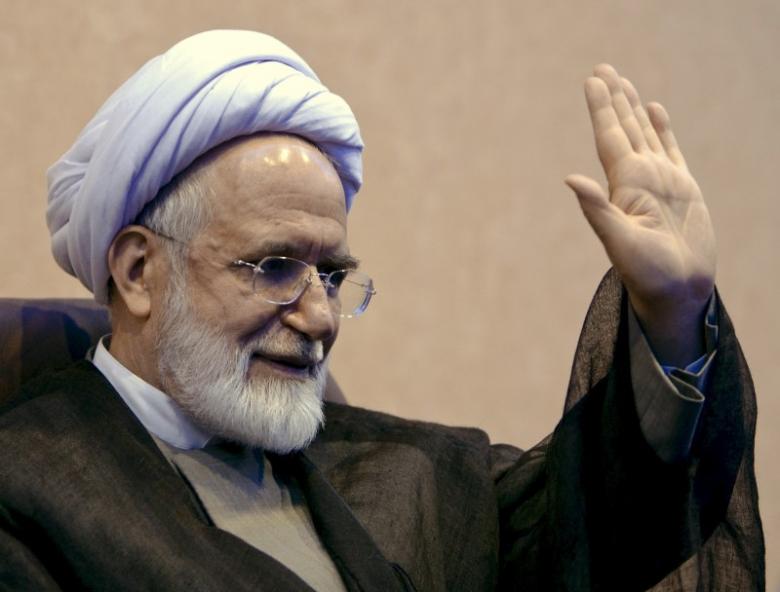London – Former Iranian presidential candidate and president of the National Trust Party, Mehdi Karroubi, resigned from his party political role after almost six years spent under house arrest.
Karroubi ran as a reformist candidate in the 2009 presidential elections.
In 2011, the opposition leader was placed under house arrest for his role in protests against the victory of conservative candidate Mahmoud Ahmadinejad, along with fellow opposition politician Mir Hossein Mousavi.
“The conditions of house arrest have rendered me unable to follow up on affairs such as the issues of this party, and my knowledge and information about it are limited,” Karroubi wrote in a letter to his party published in the reformist newspaper Shargh on Tuesday. In the letter, Karroubi asked party members to approve his resignation request for the sake of the party.
Karroubi said he was resigning in part to preserve unity in his now-banned party ahead of a May presidential election.
“While keeping its independence, the party must cooperate with the other reformist groups and movements,” he wrote.
Supporters of Iran’s Supreme Leader, Ayatollah Ali Khamenei, claim the house arrest was actually an “act of mercy” for the two leaders, since otherwise they would be put to death for sedition, in the words of ultra-conservative lawmaker Mojtaba Zolnour last week.
Sadegh Larijani, the head of the judiciary, which is considered close to hardliners, said Monday that the “sedition dossier is still open and will be examined,” without giving further details.
In April, Karroubi wrote a letter to Ahmadinejad’s successor, President Hassan Rouhani, demanding a public trial. The letter put Rouhani, whom Karroubi supported in the 2013 election, in a difficult position. Rouhani, a moderate, had promised to end the house arrest of Karroubi and two other leaders of the Green Movement, Mir Hussein Moussavi and his wife, Zahra Rahnavard.
However, Iran’s supreme leader, Ayatollah Ali Khamenei, and his supporters do not support the release of Karroubi and the other opposition leaders, despite persistent calls for their freedom.
